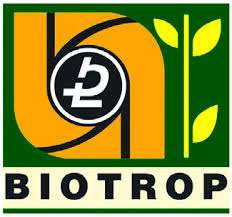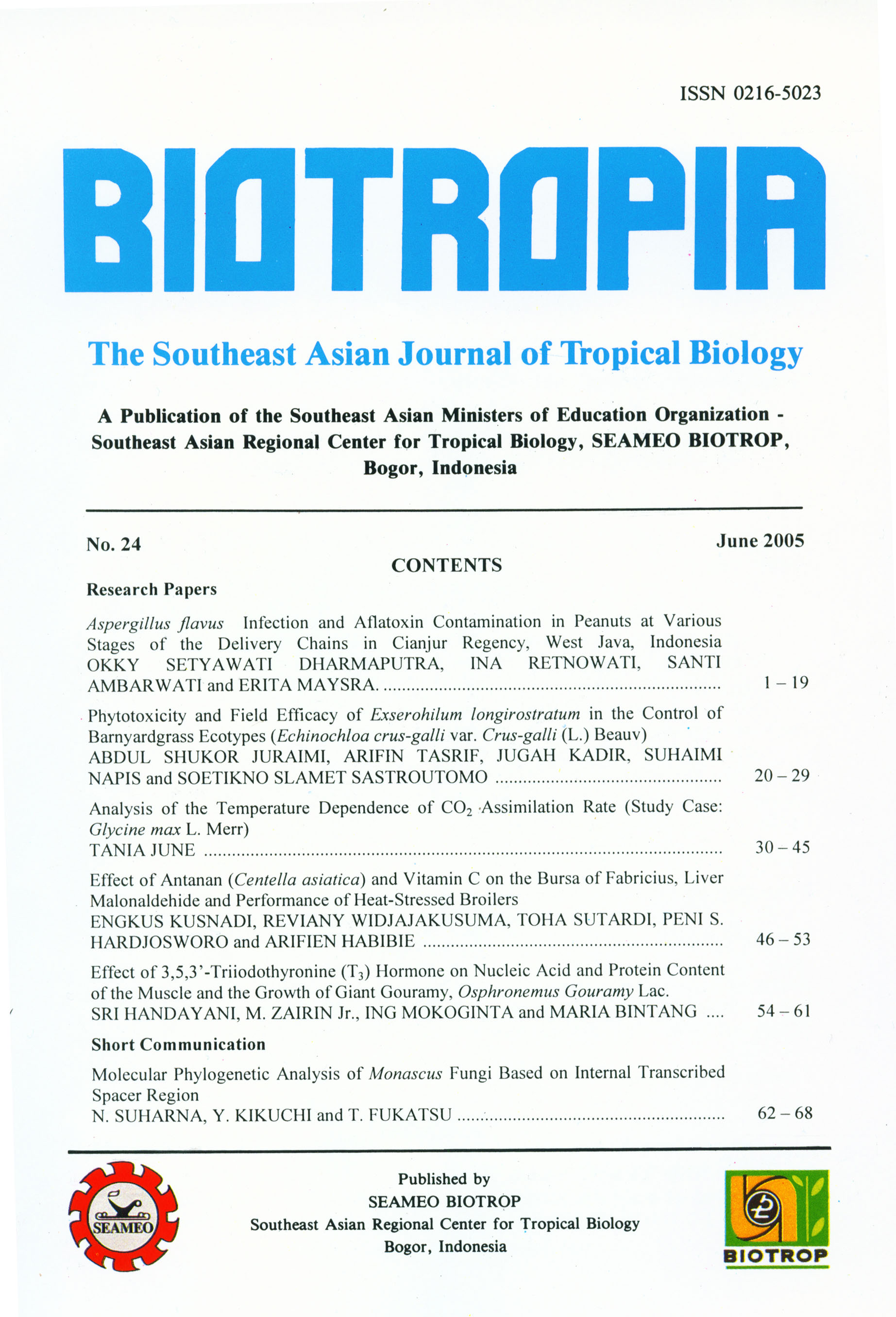
Tags
ANALYSIS OF THE TEMPERATURE DEPENDENCE OF CO2 ASSIMILATION RATE (STUDY CASE: GLYCINE MAXL. MERR)
Content Language : English

The maximum rate of carboxylation (Kcmax) and maximum rate of regeneration of Ribulose bisphosphate (RuBP)
(controlled by the rate of electron transport, Jmax) arc two processes governing the photosynthetic capacity of plants. Both
processes are affected by temperature. This paper examines how the response of these two photosynthetic capacities to
temperature determines the temperature response curve of the CO2-assimilation rate for plants grown at different
temperatures, by using the concept of the Farquhar €3 photosynthesis model. The goal is to use photosynthetic parameters
from CO2 and light curves to predict the temperature dependence of the CO2-assimilation rate (A) of soybean and to estimate
the preferred growth temperature. Analysis shows that the optimum temperature of the assimilation rate changes with the
changing temperature dependence of carboxylation and regeneration of RuBP.
Link

This work is licensed under a Creative Commons Attribution-NonCommercial-NoDerivatives 4.0 International License.
